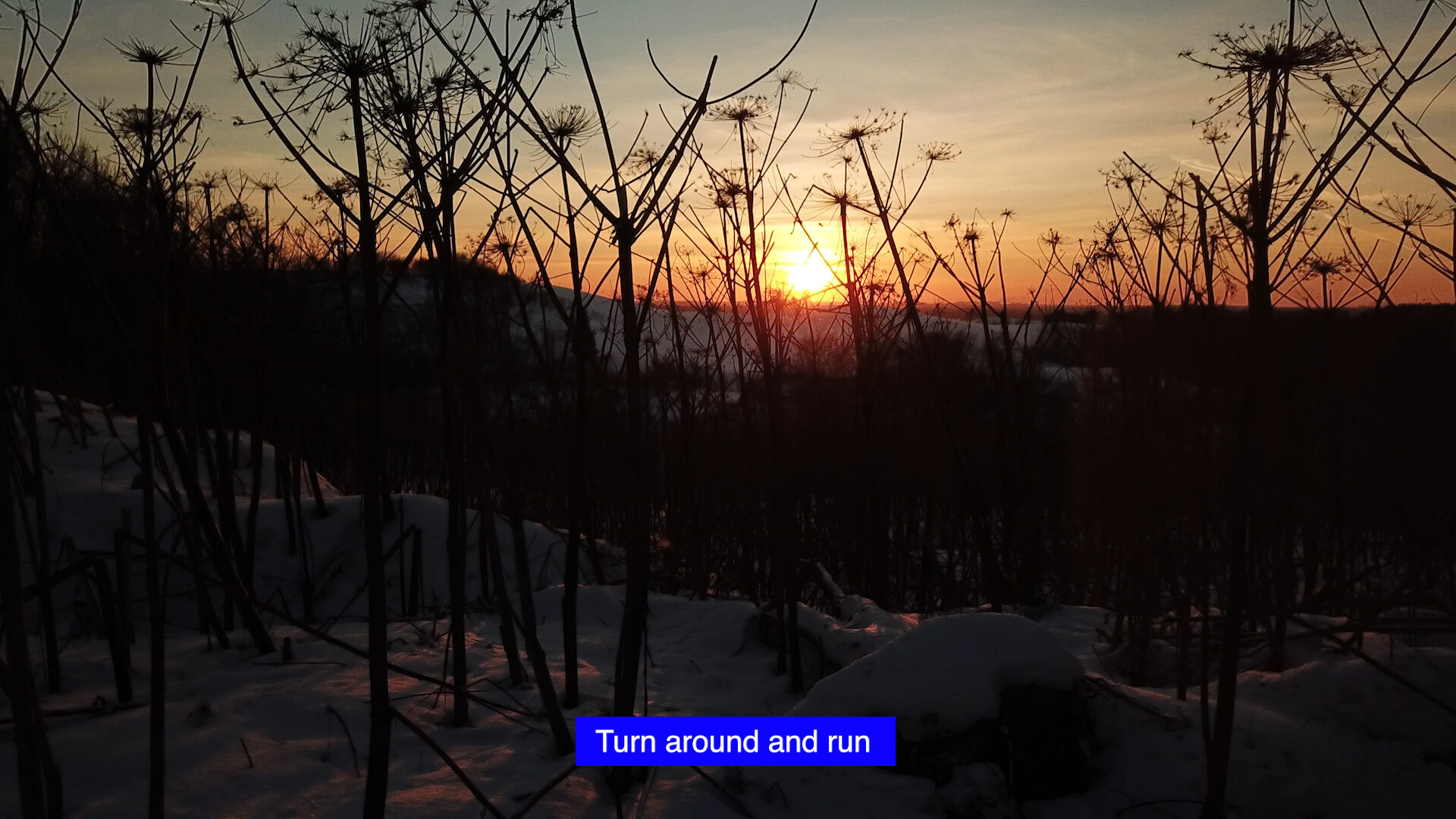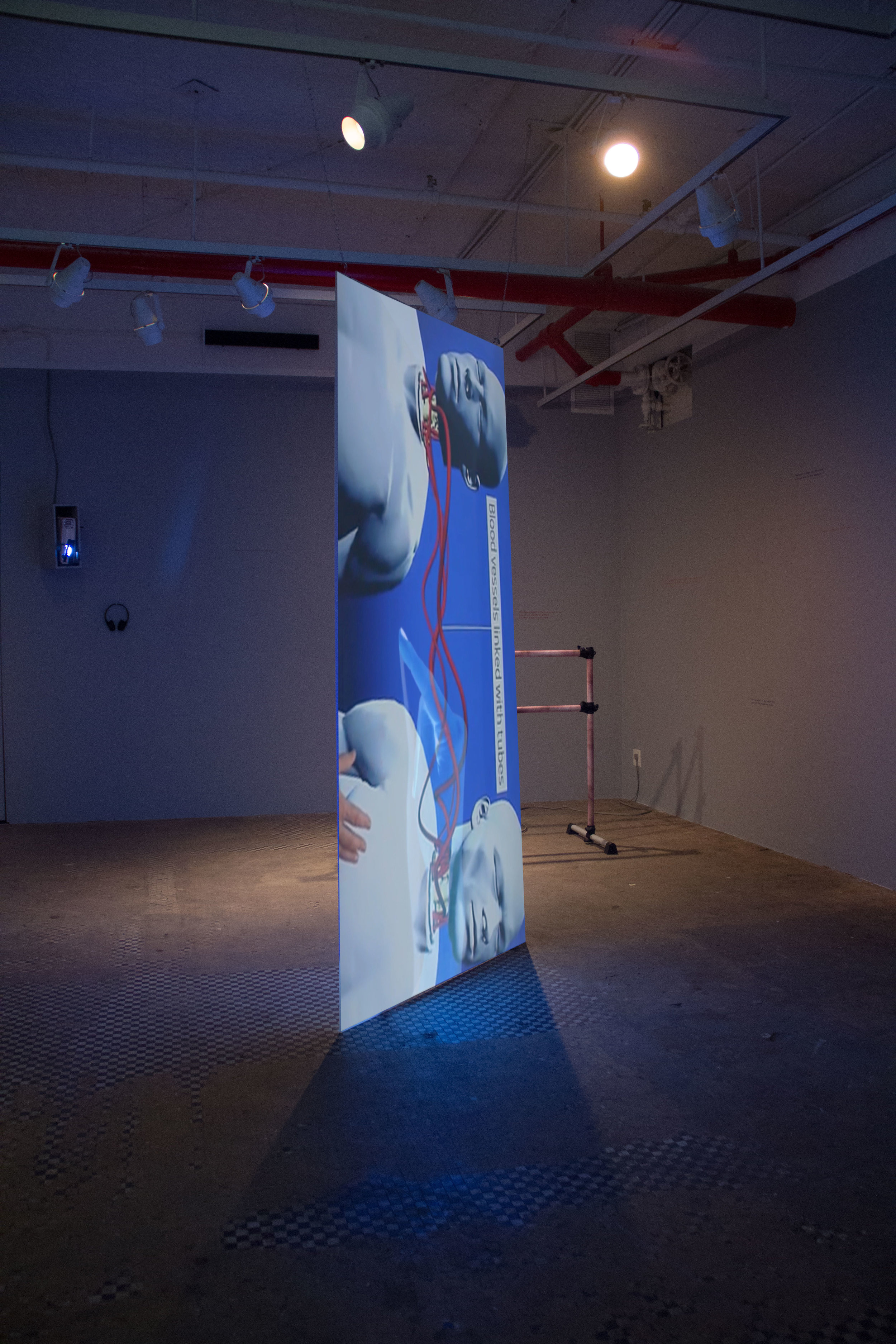VIDEO WORKS
TREE TIME
Tree Time imagines a relationship between nature and technology unmediated by human presence. Tree Time imagines a relationship between nature and technology unmediated by human presence. The video was shot in the Amazon rainforest with a drone enacting a disembodied point of view that floats through the densely compressed forest canopy, taking off, hovering above the ground, and occasionally returning to it. This artificial surveillance-observer envisages a different form of time: one which cannot be measured and is devoid of the narrative punctuation of seasons wherein all of the earth’s natural processes appear to unfold simultaneously.
THE RETURN OF THE RETURN OF THE GIANT HOGWEED
The video The Return of the Return of the Giant Hogweed created to accompany an updated version of the song The Return of Giant Hogweed released by the English rock band Genesis as part of their 1971 album Nursery Cryme.
Janus
Bearing the name of a two faced Roman god of passages and transitions, Janus is a video installation consisting of two projectors relaying vertical feeds on two sides of one semi transparent plexi glass. Ancient depictions of Janus show two of his faces one of a bearded man looking to the past and the other of a young man looking into the future. In the video installation, one projector's feed is saturated with images from art historical examples, while the other feed bears the images of the future. Janus is a visual essay on the topic of separation of the mind from the body, flesh from skin, head from torso and the body from the planet, invoking ancient mythology, science fiction, space exploration, medical experiments, and the highly anticipated head transplant surgery.
Your Vacuum Sucks (Collaboration with Pieter Schoolwerth)
Your Vacuum Sucks is an episodic film by Pieter Schoolwerth and Alexandra Lerman in which the lead character has been digitally erased from the image. Appearing as a hole, a shadow, or a mirror reflection of his properly embodied friends and coworkers he pays a friendly visit to in each of the four scenes, he engages in a series of rebus-like exchanges in which he attempts to negotiate the nature of his existence, whereby he is present to others literally through his own visual absence.
POSTCARDS FROM CENTRAL ASIA is a documentary of a journey through the post-soviet cities of Central Asia: Tashkent, Bukhara, Samarkand, Almaty and Astana with an artist and urban theorist Kyong Park. In the fall of 2008 filmmaker Alexandra Lerman joined artist and urban theorist Kyong Park on a journey through 5 cities in Central Asia. The result is a travelogue through the post-soviet cities of the New Silk Roads consisting of 5 episodes that shed light on the political, cultural and economic transformation of the cities and explains how they can be understood through their urban landscapes. The films are filled with interviews with local and European archeologists, historians, architects, geographers, artists and curators, who are involved with the region and observations by Kyong Park.
Kyong Park calls his work and research Nomadic Practice. He looks at cities as ongoing historical documents and reads urban environments not in their individual particulars but as an ecosystem. In this video, he reveals his process and discusses what he sought when traveling through Astana and Almaty in Kazakhstan, and Tashkent and Bukhara in Uzbekistan. Central Asia provides a rich fabric for the study of the ideology of Socialist modernism as expressed through architecture. Today this philosophy has been interrupted and reinterpreted to serve the needs of the newly independent nation states.
The Perpetual Peace Project (by Laura Hanna, Aaron Levy, and Alexandra Lerman) is predicated on the belief that no one institution or individual can clearly claim or guarantee a mastery of the concept of peace.
Philosophers and practitioners have been invited to speak to Immanuel Kant's text and expand upon the issues it raises in relationship to their own varied practices. Segments have been filmed against backdrops that resonate with the themes invoked by their discourse, including monuments commemorating war, deprivation, and collective memory, as well as institutional spaces of policy and international diplomacy.





